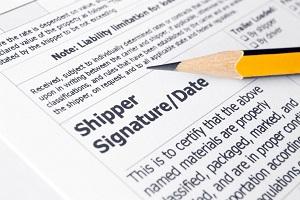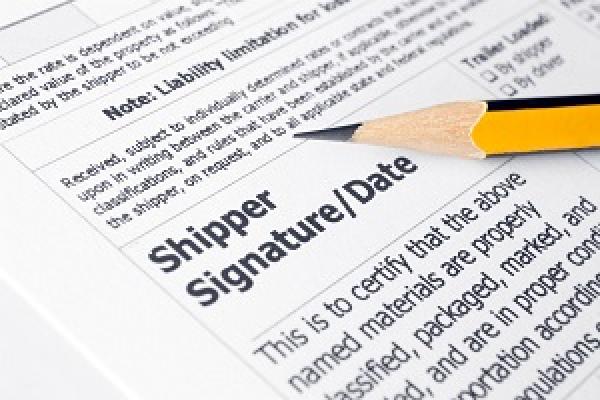
Steamship Mutual
Published: August 28, 2020
Image

The shipper named on the Bill of Lading will not always be the shipper under the contract of carriage.

Introduction
In a recent High Court case, MVV Environment Devonport Ltd v. NTO Shipping GmbH & Co. KG MS Nortrader [2020] EWHC 1371 (Comm), a claimant brought a jurisdiction challenge to an arbitration award under s.67 of the Arbitration Act 1996. The claimant argued that its inclusion as shipper in a Bill of Lading was a mistake and that it was not the shipper under the contract of carriage. The High Court agreed and set the award aside on grounds that the claimant was not a party to the arbitration agreement contained in the Bill of Lading.
Factual background
The claimant, MVV Environment Devonport Ltd (“MVV”), is a company that specialises in converting waste products to energy. As part of this process, a waste product known as “unprocessed incinerator bottom ash” (“UIBA”) is created. The claimant entered into a contract (“the IBA Contract”) with RockSolid BV (“RS”) for the disposal of the UIBA.
Under the IBA Contract, the UIBA became the property and responsibility of RS from the moment that it was loaded onto its vehicles at the claimant’s plant, and RS was responsible for arranging shipments of UIBA to its plant in the Netherlands. This included chartering a vessel for the purpose, procuring the shipment aboard the vessel and issuing a Bill of Lading for the shipment. These arrangements had been made 33 times between June 2015 and January 2017.
The litigation in this case arose after RS suffered losses after a cargo explosion occurred on board shortly after loading. The vessel, the “MV Nortrader”, had been chartered by RS from the defendant. The defendant commenced arbitration and brought a claim for damages against the claimant, as the named shipper. The claimant sought to set aside that award by arguing that it was not the shipper under the contract of carriage.
The Bill of Lading & contract of carriage
The Bill of Lading incorporated by reference the terms and conditions of the voyage charterparty between RS and the disponent owners of the vessel. The voyage charterparty named RS as charterer, MVV as shipper, and Sanders Stevens Ltd. (“SS”) as charterer’s loading agent. SS prepared the paperwork, including the Bills of Lading, which each named MVV as the shipper and RS as the consignee. For each shipment, once the documents had been generated and the UIBA had been loaded onto the vessel, SS sent a copy of the documents to the various parties.
When considering the identities of the parties to a contract of carriage, the court stated that the starting point is that the parties to a contract of carriage evidenced by a Bill of Lading are the persons named in the Bill of Lading as shipper and carrier. However, the court stated that that can be no more than the starting point because the contract of carriage is always concluded before the Bill of Lading, which evidences its terms, is actually issued.
The ultimate issue was therefore whether the claimant was party to the contract of carriage evidenced by the Bill of Lading; in other words, was the shipper named on the Bill of Lading also the shipper under the contract of carriage? If it was not, then it was not a party to the arbitration agreement with the defendant and the Tribunal had no jurisdiction.
Was there an agency relationship?
That issue in turn depended on whether either RS or SS had authority to enter into a contract of carriage as agent for the claimant. An agency relationship can arise in a number of different ways under English law, however on the facts the court held that neither RS nor SS had authority to act as MVV’s agent.
- Express authority
Under the IBA Contract, RS was exclusively responsible for the transportation of the UIBA. It was also clear that this contract was not an agency agreement but rather a principal to principal agreement.
As for SS, there was no express or implied agreement with the claimant. The decision to name the claimant as shipper was a mistake by SS (on the basis of information provided to it by RS). Meanwhile, the claimant’s silence did not amount to an implied agreement that SS had been authorised to enter into a contract of carriage on its behalf. - Implied actual authority
If a party has been given some express authority to act for another party, there are circumstances where it may be inferred from the conduct of the parties, that that party has implied actual authority to do a certain thing. The implied actual authority attaches to the express authority. However, as neither RS nor SS had any express authority to act for the claimant, there could be no implied actual authority. - Ostensible authority
Ostensible authority arises where a party, by its words or conduct, holds out that another party is authorised to act as its agent. On the facts, the claimant did not do this.
In summary, neither SS nor RS were authorised by the claimant to enter into a contract of carriage with the defendant on its behalf. The claimant was therefore not a party to the contract of carriage, despite being the named shipper on the Bill of Lading. Consequently, the claimant was not a party to the arbitration agreement incorporated into the contract of carriage and the Tribunal had no jurisdiction over the claimant.
Comment
The judgment serves as a reminder that a Bill of Lading only evidences the contract of carriage – it is not the contract of carriage itself, and the parties named on the Bill of Lading will not always be the parties to the contract of carriage. Members should be aware who they are contracting with and who can sue or be sued when claims arise.
The judgment also provides a useful reminder of the different types of authority that may give rise to an agency relationship.
Article by Constantin von Hirsch


